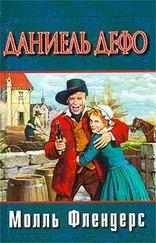Даниэль Дефо - History of the Plague in London
Здесь есть возможность читать онлайн «Даниэль Дефо - History of the Plague in London» весь текст электронной книги совершенно бесплатно (целиком полную версию без сокращений). В некоторых случаях можно слушать аудио, скачать через торрент в формате fb2 и присутствует краткое содержание. Год выпуска: 2014, Издательство: epubBooks Classics, Жанр: Историческая проза, на английском языке. Описание произведения, (предисловие) а так же отзывы посетителей доступны на портале библиотеки ЛибКат.
- Название:History of the Plague in London
- Автор:
- Издательство:epubBooks Classics
- Жанр:
- Год:2014
- ISBN:нет данных
- Рейтинг книги:4 / 5. Голосов: 1
-
Избранное:Добавить в избранное
- Отзывы:
-
Ваша оценка:
- 80
- 1
- 2
- 3
- 4
- 5
History of the Plague in London: краткое содержание, описание и аннотация
Предлагаем к чтению аннотацию, описание, краткое содержание или предисловие (зависит от того, что написал сам автор книги «History of the Plague in London»). Если вы не нашли необходимую информацию о книге — напишите в комментариях, мы постараемся отыскать её.
History of the Plague in London — читать онлайн бесплатно полную книгу (весь текст) целиком
Ниже представлен текст книги, разбитый по страницам. Система сохранения места последней прочитанной страницы, позволяет с удобством читать онлайн бесплатно книгу «History of the Plague in London», без необходимости каждый раз заново искать на чём Вы остановились. Поставьте закладку, и сможете в любой момент перейти на страницу, на которой закончили чтение.
Интервал:
Закладка:
Const. We furnish you! What mean you by that?
John. Why, you would not have us starve, would you? If you stop us here, you must keep us.
Const. You will be ill kept at our maintenance.
John. If you stint us, we shall make ourselves the better allowance.
Const. Why, you will not pretend to quarter upon us by force, will you?
John. We have offered no violence to you yet, why do you seem to oblige us to it? I am an old soldier, and cannot starve; and, if you think that we shall be obliged to go back for want of provisions, you are mistaken.
Const. Since you threaten us, we shall take care to be strong enough for you. I have orders to raise the county upon you.
John. It is you that threaten, not we; and, since you are for mischief, you cannot blame us if we do not give you time for it. We shall begin our march in a few minutes.
Const. What is it you demand of us?
John. At first we desired nothing of you but leave to go through the town. We should have offered no injury to any of you, neither would you have had any injury or loss by us. We are not thieves, but poor people in distress, and flying from the dreadful plague in London, which devours thousands every week. We wonder how you can be so unmerciful.
Const. Self–preservation obliges us.
John. What! To shut up your compassion, in a case of such distress as this?
Const. Well, if you will pass over the fields on your left hand, and behind that part of the town, I will endeavor to have gates opened for you.
John. Our horsemen cannot pass with our baggage that way. It does not lead into the road that we want to go, and why should you force us out of the road? Besides, you have kept us here all day without any provisions but such as we brought with us. I think you ought to send us some provisions for our relief.
Const. If you will go another way, we will send you some provisions.
John. That is the way to have all the towns in the county stop up the ways against us.
Const. If they all furnish you with food, what will you be the worse? I see you have tents: you want no lodging.
John. Well, what quantity of provisions will you send us?
Const. How many are you?
John. Nay, we do not ask enough for all our company. We are in three companies. If you will send us bread for twenty men and about six or seven women for three days, and show us the way over the field you speak of, we desire not to put your people into any fear for us. We will go out of our way to oblige you, though we are as free from infection as you are.
Const. And will you assure us that your other people shall offer us no new disturbance?
John. No, no; you may depend on it.
Const. You must oblige yourself, too, that none of your people shall come a step nearer than where the provisions we send you shall be set down.
John. I answer for it, we will not.
Here he called to one of his men, and bade him order Captain Richard and his people to march the lower way on the side of the marshes, and meet them in the forest; which was all a sham, for they had no Captain Richard or any such company.
Accordingly, they sent to the place twenty loaves of bread and three or four large pieces of good beef, and opened some gates, through which they passed; but none of them had courage so much as to look out to see them go, and as it was evening, if they had looked, they could not have seen them so as to know how few they were.
This was John the soldier's management; but this gave such an alarm to the county, that, had they really been two or three hundred, the whole county would have been raised upon them, and they would have been sent to prison, or perhaps knocked on the head.
They were soon made sensible of this, for two days afterwards they found several parties of horsemen and footmen also about, in pursuit of three companies of men armed, as they said, with muskets, who were broke out from London and had the plague upon them, and that were not only spreading the distemper among the people, but plundering the country.
As they saw now the consequence of their case, they soon saw the danger they were in: so they resolved, by the advice also of the old soldier, to divide themselves again. John and his two comrades, with the horse, went away as if towards Waltham,—the other in two companies, but all a little asunder,—and went towards Epping. [200] Waltham and Epping, towns two or three miles apart, at a distance of ten or twelve miles almost directly north of London.
The first night they encamped all in the forest, and not far off from one another, but not setting up the tent for fear that should discover them. On the other hand, Richard went to work with his ax and his hatchet, and, cutting down branches of trees, he built three tents or hovels, in which they all encamped with as much convenience as they could expect.
The provisions they had at Walthamstow served them very plentifully this night; and as for the next, they left it to Providence. They had fared so well with the old soldier's conduct, that they now willingly made him their leader, and the first of his conduct appeared to be very good. He told them that they were now at a proper distance enough from London; that, as they need not be immediately beholden to the country for relief, they ought to be as careful the country did not infect them as that they did not infect the country; that what little money they had they must be as frugal of as they could; that as he would not have them think of offering the country any violence, so they must endeavor to make the sense of their condition go as far with the country as it could. They all referred themselves to his direction: so they left their three houses standing, and the next day went away towards Epping; the captain also (for so they now called him), and his two fellow travelers, laid aside their design of going to Waltham, and all went together.
When they came near Epping, they halted, choosing out a proper place in the open forest, not very near the highway, but not far out of it, on the north side, under a little cluster of low pollard trees. [201] Pollard trees are trees cut back nearly to the trunk, and so caused to grow into a thick head ( poll ) of branches.
Here they pitched their little camp, which consisted of three large tents or huts made of poles, which their carpenter, and such as were his assistants, cut down, and fixed in the ground in a circle, binding all the small ends together at the top, and thickening the sides with boughs of trees and bushes, so that they were completely close and warm. They had besides this a little tent where the women lay by themselves, and a hut to put the horse in.
It happened that the next day, or the next but one, was market day at Epping, when Captain John and one of the other men went to market and bought some provisions, that is to say, bread, and some mutton and beef; and two of the women went separately, as if they had not belonged to the rest, and bought more. John took the horse to bring it home, and the sack which the carpenter carried his tools in, to put it in. The carpenter went to work and made them benches and stools to sit on, such as the wood he could get would afford, and a kind of a table to dine on.
They were taken no notice of for two or three days; but after that, abundance of people ran out of the town to look at them, and all the country was alarmed about them. The people at first seemed afraid to come near them; and, on the other hand, they desired the people to keep off, for there was a rumor that the plague was at Waltham, and that it had been in Epping two or three days. So John called out to them not to come to them. "For," says he, "we are all whole and sound people here, and we would not have you bring the plague among us, nor pretend we brought it among you."
Читать дальшеИнтервал:
Закладка:
Похожие книги на «History of the Plague in London»
Представляем Вашему вниманию похожие книги на «History of the Plague in London» списком для выбора. Мы отобрали схожую по названию и смыслу литературу в надежде предоставить читателям больше вариантов отыскать новые, интересные, ещё непрочитанные произведения.
Обсуждение, отзывы о книге «History of the Plague in London» и просто собственные мнения читателей. Оставьте ваши комментарии, напишите, что Вы думаете о произведении, его смысле или главных героях. Укажите что конкретно понравилось, а что нет, и почему Вы так считаете.












